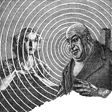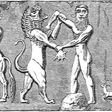
Reiki & Alternative Medicine
In this episode, Megan and Frank discuss the alternative medicine practice known as "Reiki," a kind of touch energy healing. What is Reiki, and how is it supposed to work? Is there scientific evidence of Reiki's effectiveness, or is it all just a placebo? And if so, would that really be a problem?
Hosts' Websites:
Email: philosophyonthefringes@gmail.com
-----------------------
Bibliography:
Frontiers | Does Reiki Benefit Mental Health Symptoms Above Placebo?
What is Reiki? Energy Healing and Chakra Work — Lisa Kern
Does Reiki Work? - The Atlantic
Evidence and explanation in Cicero's On Divination
Tylenol Is Popular and Safe, Yet Nobody Knows How It Works | Scientific American
Siegel - Predictive Analytics, Revised and Updated
The Phantom Pattern Problem - Gary Smith; Jay Cordes - Oxford University Press
A radical new hypothesis in medicine: give patients drugs they know don’t work | Vox
The weird power of the placebo effect, explained | Vox
The Power of Mind over Body | Plus
Placebos Work—Even Without Deception | Harvard Medical School
Hume, David: Causation | Internet Encyclopedia of Philosophy
Researchers are still working to prove that antidepressants are more effective than placebo
Medical Nihilism - Jacob Stegenga - Oxford University Press
-----------------------
Cover Artwork by Logan Fritts
-------------------------
Music from #Uppbeat (free for Creators!):
https://uppbeat.io/t/simon-folwar/neon-signs
License code: GAXUNUBZXURBJU22



















